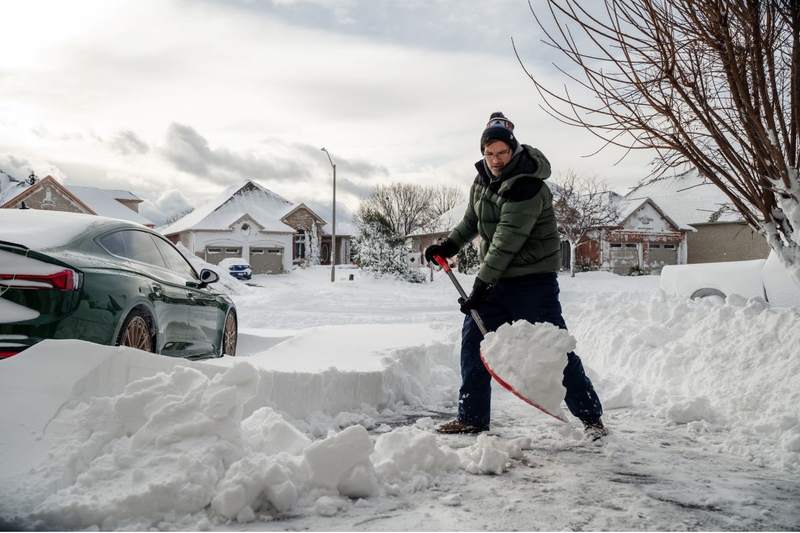Whether you’re a first-time property owner or looking to expand your home, knowing the exact location of your land’s property lines is important. Some property lines are clearly marked by landscape changes or roads, while many are completely invisible or have changed over time. To gain the most precise understanding of a property, you need a property survey.
Let’s take a closer look at what property surveys are and why you might want to get one done.
Find A Mortgage Today and Lock In Your Rate!
Get matched with a lender that will work for your financial situation.
What Is A Property Survey?
A property survey assesses a particular property’s legal description and its boundary lines. In addition, it makes a determination of easements included in the parcel of land. Although it’s possible to have a property surveyed anytime, reaching a firm conclusion on the land boundaries is key to the home buying process.
Depending on your mortgage company and where you live, you may need a property line survey to get a mortgage or meet legal requirements. A property survey lets you know what land you’re responsible for and where you can build, while empowering you and your mortgage lender or title company to set the most accurate terms of your agreements.
See What You Qualify For
Buy A Home
Discover mortgage options that fit your unique financial needs.

Refinance
Refinance your mortgage to have more money for what matters.
Tap Into Equity
Use your home’s equity and unlock cash to achieve your goals.
What’s Included In A Property Survey?
There are different types of property surveys, but they all determine important characteristics and features of the land based on what the property owner needs. From ensuring the building meets zoning codes to seeing whether a driveway is in the right place, there’s a type of survey to address a specific need.
Next up are a few examples of what various types of surveys will measure and what the measurements will accomplish for the property buyer.
Property Lines
A precise understanding of your property lines and legal boundaries is essential for a homeowner. By eliminating any confusion or gray areas, you can build or expand your home with confidence and avoid encroachments – property disagreements with your neighbors.
In real estate terms, encroachment is when a neighbor builds something that invades another neighbor’s property. This type of conflict can easily turn into a legal issue.
Also, you could be liable for injuries or damage related to a structure on your property, even if you didn’t build it. You could also face higher insurance premiums. Finally, some potential buyers may not offer the best price for a property with poorly defined legal boundaries.
Establishing property lines is typically part of an as-built survey, land survey, monumentation survey or mortgage survey.
Easements
A property survey will reveal any easements on the property you want to purchase. An easement may require you to share access to some part of your property. For example, a utility company could have the right to install electrical wires on your land, or you may be required to share a private road or beach with your neighbors.
There are many different types of easements, and they’re not always a problem. It’s just better to know about them so you’re not caught by surprise.
Elevation
Topographical surveys map the contours, elevation and features of a property. This type of survey will include your property’s exact elevation, building type and flood map location to determine the proper flood insurance premium rates.
This information is important for architects and building contractors. It can also impact the design and cost of any new structure you decide to build. Paying for a topographical survey and a flood certificate now could end up saving you hundreds of dollars per year.
Hazard Areas
The fieldwork a property surveyor does on a plot of land can uncover potential problems and hazard areas. This is especially important if you plan to build new structures on your land. A thorough survey from an accredited professional can help you avoid costly mistakes, like trying to build your new home and finding that your lot has a water table near the surface. Or, your lot could incur future damages from land erosion, landslides or earth collapse.
Floodplain surveys focus on one type of hazard, which can help property buyers in areas prone to flooding.
Find A Mortgage Today and Lock In Your Rate!
Get matched with a lender that will work for your financial situation.
How To Confirm The Boundaries Of The Property
There are several ways to confirm the legal boundaries of your plot of land. Let’s explore a few.
Hire A Land Surveyor
A professional land surveyor is an expert in defining property lines. They use their skills, education and specialized field equipment to create legally binding property surveys. They can even serve as expert witnesses in court cases about land disputes.
During the property survey, a land surveyor will compare historical records and data with any existing markers to accurately define your property lines – and their findings are legally binding. This process takes time, effort and boots-on-the-ground legwork, so hiring a well-respected and well-reviewed land surveyor before purchasing land or beginning any new home expansions is your best bet to avoid future legal issues. Call around for quotes before you decide and be wary of any too-good-to-be-true low estimates.
Check The Property Deed
Several types of deeds are used in real estate. A property deed is a written legal document transferring ownership of a property from the grantor to the grantee (not to be mistaken for a title, which is the actual document stating who legally owns the property).
A property deed will have several pieces of important information: accurate owner names, exact address, tax map number, legal description, restrictions and other information like conditions of the transfer and reservations of rights by a prior owner. While some deeds only reference a lot or block number, many include detailed measurements in the form of – yep, you guessed it – a property survey done by a land surveyor.
Search Property Survey Records
While there’s no national archive of real estate records, many states require property surveys to be filed with the local government. You can search for property surveys by visiting the courthouse, property or assessor’s office where your new land is located.
You’ll need to manually check transfers, requirements and restrictions on the property. This avenue can be time-consuming, but it’s a free to low-cost way to empower yourself with the knowledge and history of your new property’s legal boundaries.
Find A Property Survey Online
Many local governments keep property records online. To search for your piece of land, you’ll need specific details about the property you want to look up. Gather as much information as you can – like the street address, boundary descriptions and date of the last survey. Then, search the official county or assessor’s website where the property is located.
The more information you have, the easier it will be for you to find the survey you need. Not all records will be digitized, but the results of your search may help you narrow down the exact office where your survey is located. You can then call the office and ask if they can mail you a copy of the survey.
Geographic Information System (GIS) maps and property search sites are a better option if you have limited information on your property. However, these sites often charge a fee or require a subscription.
Contact The Previous Surveyor
Land surveyors keep copies of the property surveys they complete (legally, the survey belongs to them). If you know the name and contact information of the previous land surveyor, try contacting them. It’s very likely that, for a fee, they can send you a copy.
Land surveys are usually valid 5 to 10 years after they’re completed. If the previous survey was done a long time ago, it’s probably a good idea to get a new one done even if you locate the official document.
How Much Does A Land Survey Cost?
On average, new homeowners can expect an average cost of $376 – $745 for a professional property survey. However, survey cost depends on factors such as property size, terrain and location. For example, if you want to survey a wooded area, you’ll end up paying more than if you surveyed a flat, relatively empty piece of land.
Professional surveyors also charge for the time it costs them to research your property. A well-documented plot of land won’t take as much time to research and surveying it will be cheaper. It also pays to go local, since travel time is included in the final price.
In sum, you’ll pay less when the land isn’t as difficult to survey.
Property Survey FAQs
Still unsure how property surveys work or if you need one? We’ve answered a few frequently asked questions.
Is a property survey necessary?
Property surveys may not be legally required and may not be a requirement for all mortgage lenders. You can order a survey anytime, but it can be especially important to order one when buying or constructing a new home.
Can I buy a house without a survey?
Purchasing a house without conducting a property survey can be risky. Not considering the boundary lines of the property could lead to unforeseen problems down the road. It’s also worth considering a property survey when buying a home.
Do I need a survey if I am a cash buyer?
Because you’re purchasing the home using cash, there are no lender requirements to have a boundary survey completed. However, a survey may be required if you decide to purchase title insurance.
Can I survey my own property?
You can survey your property, but your results aren’t acceptable for property records if you’re not a professional home surveyor. To find your boundaries, read the plat map – or scaled map of land divisions – included with your property’s paperwork. You might also find the plat map online. Newer properties may still be marked with flags or stakes.
The Bottom Line: A Real Estate Survey Can Help With Encroachment Issues
Property surveys are an important part of the home buying process and are usually paid for by the buyer. It’s possible to find information on your property lines without conducting an official property survey, but you won’t end up with an official document – and you can’t use your findings as part of a property sale or legal dispute. The best option here is acquiring the services of a property surveyor who’s a licensed professional, but the cost will vary depending on the type of land you want surveyed.
Planning to add onto your property? See if a cash-out refinance can help fund your next home improvement project.
Find A Mortgage Today and Lock In Your Rate!
Get matched with a lender that will work for your financial situation.

Victoria Araj
Victoria Araj is a Staff Writer for Rocket Companies who has held roles in mortgage banking, public relations and more in her 15-plus years of experience. She has a bachelor’s degree in journalism with an emphasis in political science from Michigan State University, and a master’s degree in public administration from the University of Michigan.












